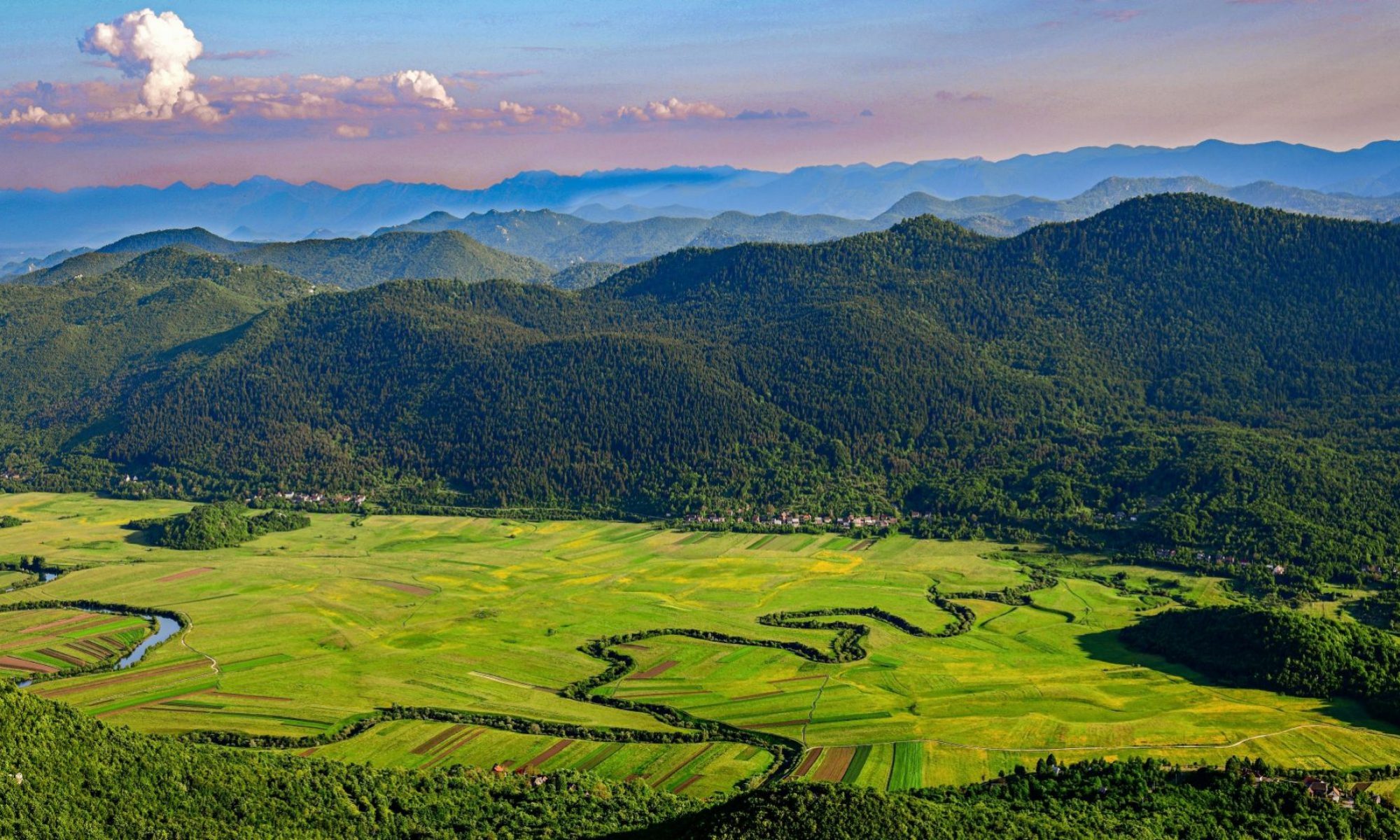
Department of Teacher Education Studies in Gospić, University of Zadar
in cooperation with the
Institute of Cultural History, Research Centre of the Slovenian Academy of Sciences and Arts,
Postgraduate School ZRC SAZU
and the
Faculty of Educational Sciences, Juraj Dobrila University of Pula
is organising
The international scientific conference held within
The 9th Šime and Ante Starčević Days
titled
Landscape in Education and Education in the Landscape
May 22 – 23, 2026
in Gospić
Dr. Ante Starčevića 12
Defined as the unity of all elements within a given area as perceived by humans, landscape represents not only a recurrent motif in the visual arts but also a concept of substantial interpretative and scholarly depth, lending itself to diverse interdisciplinary approaches. Since the 19th century, when Alexander von Humboldt introduced it as a scientific concept within geography, the notion of landscape has evolved into a significant object of study across numerous academic disciplines — ranging from archaeology and historical studies to ecology, environmental sciences, landscape architecture, urbanism, psychology, sociology, and related fields.
Although frequently employed in everyday language, the term landscape—along with related terms such as paysage and scenery—is a highly polysemous and semantically rich concept. Each of these terms is understood and applied differently across various artistic and scientific disciplines. In the visual arts, for instance, landscape appears in forms such as landscape painting and landscape design; in literature, it emerges as landscape poetry; in linguistics, as the ubiquitous linguistic landscape; and in music and sound art, as the musical landscape or soundscape. Within geography, architecture, and urbanism, distinctions are often drawn between urban and rural as well as natural and cultural landscapes (or paysages). In agronomy and the natural sciences, attention is directed towards landscape architecture and the concept of significant landscapes as forms of protected areas. Moreover, the concepts of cultural, historical, and archaeological landscapes are relevant in the context of cultural heritage preservation. Owing to its broad applicability, the concept of landscape also constitutes a recurrent theme in education—across all levels, from early childhood to higher education—where the terms landscape and scenery are frequently used interchangeably.
Because it primarily denotes open spaces, landscape—along with environment—has become an indispensable concept in contemporary educational discourse. Outdoor learning in natural and cultural landscapes is increasingly encouraged across all subject areas. The benefits of such an approach are numerous, encompassing the enhancement of physical and mental well-being among preschoolers, pupils, and students, as well as the development of essential life competencies such as spatial orientation in natural and urban settings, creativity, curiosity, tolerance, and an enduring desire for exploration and research. Moreover, it fosters social connectedness, a sense of responsibility for the preservation of natural and cultural heritage, and a strengthened sense of belonging to both local and national identities.
Given the breadth of the landscape concept and its significance in educational theory and practice, we warmly invite you to explore and engage in dialogue on this multifaceted theme. Suggested areas of discussion include, but are not limited to, the following:
- The Concept of Landscape — Definition and theoretical framing; landscape perception; landscape in science and the arts; landscape in relation to other concepts such as sense of place, homeland, and environment; types of landscapes.
- Landscape Protection — Legal frameworks; cultural landscape and heritage; protected natural heritage; case studies in landscape protection.
- Culture, History, and Landscape — Literary representations of landscape; artistic interpretations of landscape; historical landscapes; landscape and environmental archaeology.
- Multilingualism and Linguistic Landscapes — Communication and multilingualism in the digital environment; the linguistic landscape in the context of globalisation; the linguistic identity of space; the semantic complexity of the term landscape; toponyms in the landscape.
- The Human–Landscape Relationship — Interactions between people and nature in shaping the landscape; the impact of the environment on the behaviour of individuals and groups.
- Landscape in School and Education — Landscape in the curriculum; representations of landscape in school textbooks; pupils’ and students’ conceptual understanding of landscape; environmental education and volunteering.
- Landscape in Outdoor Education — Experiences of teaching in natural and cultural landscapes of the local environment; landscape in extracurricular activities.
The conference languages are Croatian and English.
The working sessions of the conference will be held on 22 May 2026 at the Department of Teacher Education Studies in Gospić. The second day of the conference, 23 May 2026, will include an excursion to the surrounding area of Gospić.
All participants will receive an official certificate of participation.
Conference participants will also have the opportunity to publish their presentations in the form of papers in the conference proceedings. All submitted papers will undergo a double-blind peer review process, and only those receiving two positive reviews will be accepted for publication.
For any additional information, please contact via email: dani-sas@unizd.hr
We look forward to your participation in our conference and warmly welcome you.
Assistant Professor Ivana Crljenko
Chair of the Programme Committee
Assistant Professor Dodi Malada
Chair of the Organising Committee
